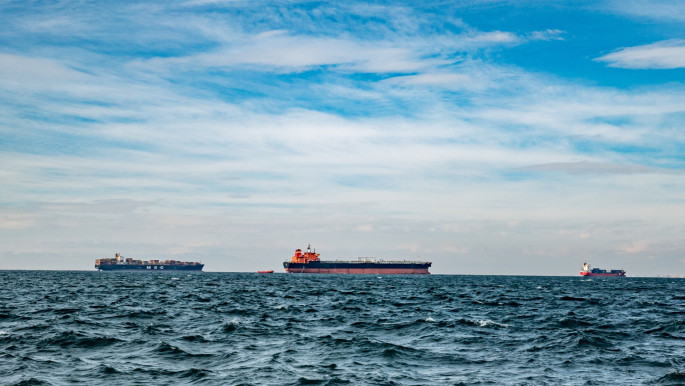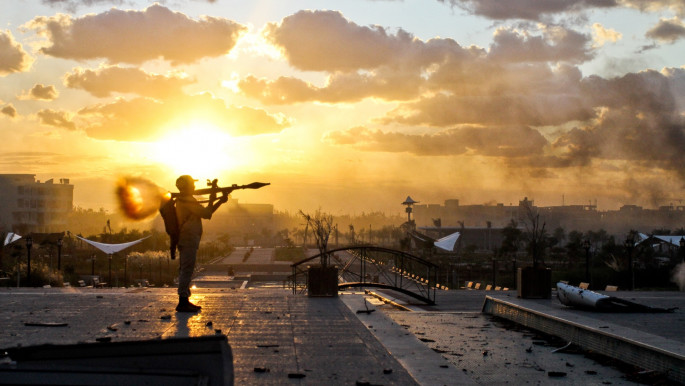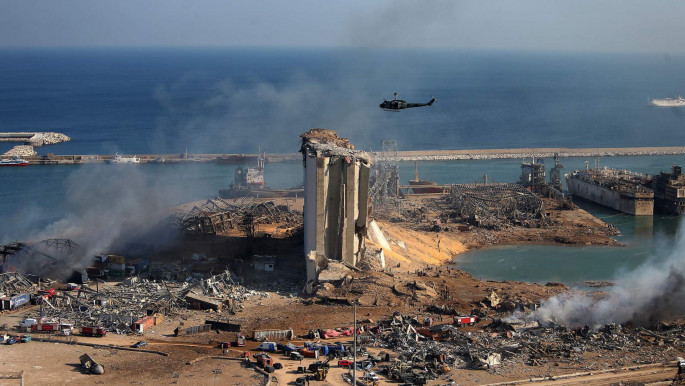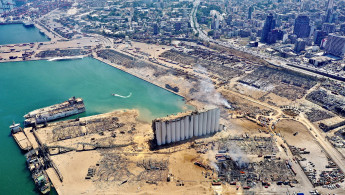Desires for Eastern Mediterranean clout drive offers to rebuild Beirut's port
The explosion at Beirut's port on 4 August further shattered Lebanon's economy, disabling Lebanon's main access point for imports.
Meanwhile various countries, namely China, France, the United Arab Emirates (UAE) and Turkey are primary candidates to rebuild it.
While seemingly positive gestures, hopes to acquire greater Eastern Mediterranean influence, amid a growing regional power struggle, largely drive such desires to gain control of Beirut's port.
"There are huge interests in reconstructing Beirut's port, as it is the finest deep seaport in the Eastern Mediterranean," Dr. Habib Malik, Professor at the American University of Beirut (AUB), told The New Arab.
"It is more developed than Haifa [in Israel], better than Syria's alternatives and Tripoli [also in Lebanon]. France initially developed it during the colonial mandate period, enabling it to become a main transit point for East to West trade."
Kuwait offered to rebuild Beirut's only grain silo on 23 August as a symbol of "how to manage relations between two brotherly countries that respect each other", Abdulaal al-Qenaie, Kuwait's Ambassador to Lebanon, said.
 |
There are huge interests in reconstructing Beirut's port, as it is the finest deep seaport in the Eastern Mediterranean |  |
Kuwait initially built the silo with a development fund loan in 1969, showing it primarily aims to maintain its economic and cultural links with Lebanon. The Director General of Kuwait's Ports Authority added it would help Beirut restart operations from the port.
While Kuwait would limit itself to such smaller gestures, others see the port as a potential boost for stronger geopolitical clout.
 |
|
| Greece-Egypt maritime deal aims to shackle Turkey's Mediterranean designs |
China's vision for the Eastern Mediterranean
A primary candidate for the reconstruction of Beirut's port is China. Beijing has used its economic clout to secure greater influence in Asia and Africa, per its 'Belt and Road' initiative. This would also help it outmuscle the United States' fifth fleet in the Eastern Mediterranean.
China already operates several regional ports, including Haifa and Ashkelon in Israel, Piraeus in Greece, and three around Alexandria, Egypt. While these alone are substantial for China, Beijing still looks to expand further, and Beirut's developed port would seem very attractive.
Hezbollah's leader Hassan Nasrallah, the most powerful figure in Lebanon's politics, has shown receptivity towards Chinese investment. And given Hezbollah's influence over Lebanese politics, this already gives Beijing an advantage.
"Chinese companies are ready to bring in money, and without any of the complications that we talk about in Lebanon. We don't have to give them money, they will bring money into the country," Nasrallah said in July.
"Hezbollah want to reorient Lebanon towards the East, namely through building ties with Iran and China," said Malik, a professor at AUB. "They deliberately want to impoverish Lebanon, so the country would be forced to accept Chinese investment."
 |
Though France and China are largely favoured to lead efforts to rebuild Beirut's port, the geopolitical tug of war could stall genuine efforts to help the Lebanese people |  |
"However, much of Lebanon opposes Chinese investment, due to awareness of the exploitative effects it could have," he added.
Yet as the United States seeks to counter Chinese influence in the region, it may pressure Beirut against welcoming Beijing's help. In June, Washington warned its Middle Eastern allies not to accept Chinese investment.
Rather than just adding pressure, Malik argues "the West should offer more attractive terms to rebuild Beirut's port, or this could leave open the prospect of Chinese investment and undermine Lebanon's ties with the West."
Turkey offers to step in
Meanwhile Turkey has also expressed its interest in investing in Beirut's port. Ankara offered to engage in the ports' reconstruction and help rebuild it, Turkish Vice-President Fuat Oktay said during a visit to Lebanon on 8 August, without elaborating.
 |
|
| France and Turkey's growing rivalry in the Middle East |
Turkey has expanded its influence in the Eastern Mediterranean, after signing a Memorandum of Understanding (MoU) with Libya's Government of National Accord (GNA) in November 2019. Months earlier Ankara had expanded its drilling for oil and natural gas near Cyprus.
"Turkey definitely has an interest in the port. The only Turkish-owned ports in the Eastern Mediterranean are currently in Turkey itself," James Dorsey, senior fellow at Nanyang Technological University in Singapore, told The New Arab. "As Ankara is making a bid for greater regional influence, it would be keen to secure Beirut's port, which would massively boost its presence in the Eastern Mediterranean."
This may be difficult however, given France's ties to Lebanon. France would see Ankara's acquisition of Beirut's port as further Turkish expansion, which France opposes. After all, Paris has criticised Ankara's activities in the Eastern Mediterranean, while also opposing Turkey's intervention in Libya
This increases the prospect of France itself engaging in the reconstruction of Beirut's port. Prior to a visit from US diplomat David Hale to Beirut on 14 August, official Lebanese sources said Lebanon may be leaning towards French reconstruction.
 |
Like Paris, Abu Dhabi also perceives Ankara as a rival, particularly over Libya, Syria and the Horn of Africa |  |
"As of now, the consensus in Lebanon, and our best interest is to go with the French. If we go with the French, the US will not be instigated. And if we go with the Chinese, the US will continue its pressure campaign against Lebanon," said the first official source.
"Lebanon's best bet is to go with the French; no one will feel that we sided against them," a second source added.
Such sources should be taken seriously, given France's strong cultural and political ties in Lebanon. Moreover, given France's rivalry with Turkey along the Eastern Mediterranean, Paris would see this as deterring Ankara's interests.
"France would want to pressure Lebanon against accepting Turkish investment," said Malik. "However, there is a vacuum in the Sunni Muslim leadership in Lebanon, which has left the community frustrated, and Turkey may be looking to fill this."
Dr. Malik also says this could lead to a collaboration between France and the UAE, with the latter acting as Paris' partner in reconstructing Beirut's port.
 |
|
| Read more: Beirut Explosion: Be angry, not just sad, for Lebanon |
France-UAE collaboration?
Like Paris, Abu Dhabi also perceives Ankara as a rival, particularly over Libya, Syria and the Horn of Africa. Emirati-Turkish tensions are now spilling over into the Eastern Mediterranean. This alone may drive them closer together.
Dubai Ports World, the UAE's official port development company, donated $100,000 to Lebanon's Red Cross following the explosion. However, the UAE often uses such humanitarian gestures prior to expanding its geopolitical activities in various other countries.
As DP World is considered a pillar of Emirati foreign policy, further initiatives with Beirut's port would allow Abu Dhabi to expand in the Eastern Mediterranean.
DP World however has a strong reputation for port management. It currently manages 78 marine and inland terminals in over 40 countries across six continents. Should the UAE offer enough financial support, this could aim to sway Lebanon.
Furthermore, that Abu Dhabi could collaborate with France, serving an alternative to China and Turkey, would help it gain greater approval in Lebanon. France would also be keen to cooperate with the UAE, given their increasingly strong geopolitical alignment.
Though France and China are largely favoured to lead efforts to rebuild Beirut's port, the geopolitical tug of war could stall genuine efforts to help the Lebanese people, who were impacted the most by the devastating explosion.
Jonathan Fenton-Harvey is a journalist and researcher who focuses on conflict, geopolitics and humanitarian issues in the Middle East and North Africa
Follow him on Twitter: @jfentonharvey



